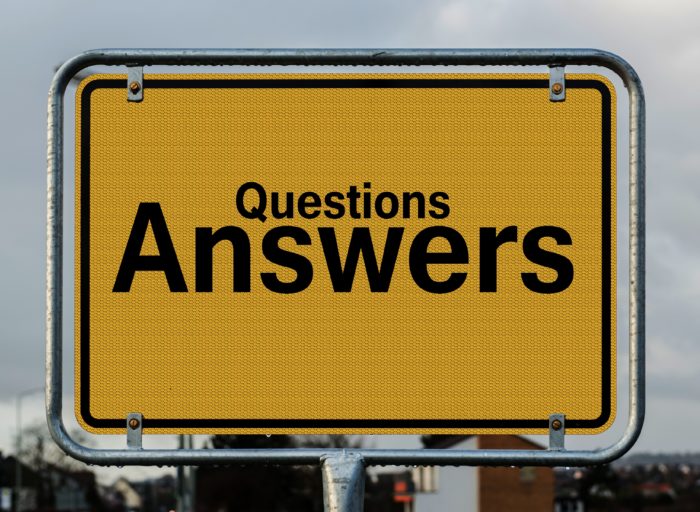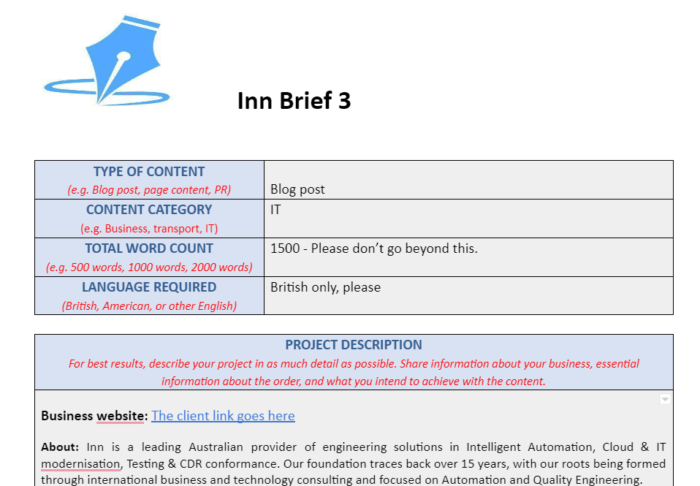If you’ve spent any time researching digital marketing for your business, you’ve probably come across professional content writers and the phrase “Content is king.” Today, content is one of the most effective ways to generate traffic, grow your reach, connect with your audience, and promote your brand.
For example, did you know that 96% of marketing decision-makers feel content marketing has been effective for their brand? Or that 88% of content marketers have successfully achieved the brand awareness and credibility they were aiming for?
However, producing content internally is a time-consuming and challenging process. Working with trusted and experienced content writing service providers makes more sense for many businesses.
But knowing what to expect is hard if you’ve never worked in the content writing industry. How does a content writing service work? What does it entail? Who is responsible for what? And, how do you know your money is going to good use?
Below, we’ll break down the entire process of working with a content writing service. This should clear up any gaps you have in your understanding.
Client discovery and Questions and Answers

For any content project to be successful, it must be tailored to your brand’s voice, audience, and goals. That’s why professional content writers embark on an extensive journey of discovery to understand their client’s needs.
Client discovery can take several forms, including questionnaires, interviews, or just a friendly conversation. In most cases, the content writer will ask questions like:
- What are your content goals?
- Who is your target audience?
- What content do you need? For example, business writing, how-to guides, reviews, a case study, or blog posts?
- Do you have an internal content style guide?
- What role do you need us to play in reaching your goals?
- If writing for a blog, where does the blog fit into your sales funnel? Top, middle, or bottom?
- What service or product do you offer, and how does it help your audience?
- Explain what your most significant obstacle is to creating or publishing content?
On top of speaking to the client directly, the content writer will also do independent research. This is to analyse the client and their industry, competitors, and audience from a content writer’s perspective.
Consensus and agreement on the project scope

Once the content writer understands the client’s pain points and goals, it’s time to set the project’s parameters. It’s hard to overstate how important it is for a client and writer to be in alignment regarding the details.
For example, these follow-up questions might go something like this:
- What is your budget?
- How much written content do you need, and at what frequency?
- What will the duration of the project be?
- Who is responsible for what? E.g., doing competitor or keyword research, providing the topics, drafting the content strategy, publishing the content, etc.
By answering these questions and coming to a consensus, both parties will clearly understand their respective roles in the project. It will also result in a better working relationship because each will understand:
- Their responsibilities to the project
- What is expected of them, and when
- Everything about the deliverables and when are they due
Even if a content writer delivers exceptional work, the project might not be a success in the eyes of the client if their expectations aren’t met. This is why professional content writers take this step very seriously.
Drafting a professional content writers work brief

In this step, the content writer formalises the project scope and deliverables into black-and-white briefs. A brief is a description of work for each task or work order. A brief can be made for a single article, a series of related content, a project milestone, or even an entire project.
A lot of work goes into creating an in-depth professional content writers brief, such as:
- Researching viable topics
- Gathering pertinent client information
- Finding and analysing competing content
- Conducting an SEO analysis for related search terms, keywords, etc.
This is why it’s easiest for those with experience and knowledge in content writing to create effective briefs.
A brief ensures that when a task is assigned to an individual content writer, they clearly understand what the client expects of them. A clear brief helps to eliminate the need for any back-and-forth, content reworks, or content that is not fit for purpose.
It’s also important so that everyone can agree whether individual milestones in the project were met. If the brief produced the correct work, everyone knows they are on the right track. If not, it might be time to rediscuss the scope or client expectations. In this way, adjustments can be continuously made to improve the project.
This helps the project run smoothly with minimal time-wasting and frustration.
Research and content production

The brief will tell the content writer things like:
- What to write about
- The purpose and goal of a piece of text
- What information to include
- The voice, style, and emotions it should portray
- Information to avoid using within the text
- Samples of similar or competing content
- The target word count and, sometimes, article structure
However, this is not all that is required to write compelling, high-quality content. First, the writer must research the subject thoroughly. This is so they can confidently write relevantly and accurately, providing valuable information for the reader.
The writer needs to be able to think for themselves and take the initiative. There might be times when sticking too rigidly to the brief won’t be possible. For example, if some information has changed, is no longer relevant, or is unavailable. In this case, the writer must make certain on-the-fly decisions to produce the highest quality content possible.
A writer is also expected to edit their work for content and grammar, verify the information, and cite sources.
Crafting content may also involve several steps depending on the writer’s process. It’s common practice to create a first draft that is further refined through review and editing rounds. Or that can be submitted to the client for initial approval.
Editing and quality assurance

Usually, a professional content writing service consists of a team of writers, editors, and SEO experts working in tandem. Content goes through multiple rounds of checking and approvals before being sent to the client. Even though writers should check many of these factors, a second pair of eyes can often catch additional issues.
Internal editors will check the content for consistency, quality, grammar and spelling, and plagiarism. They will also ensure that the content adheres to the brief, editorial standards, and house style.
When editing is done, the content writer should have a complete and polished piece of content to show the client.
Client handover and aftercare
Once the content writer is confident they have produced an appropriate and high-quality piece of content, it’s time to send it to the client. The client handover doesn’t just involve sending the content to the client and waiting for their approval. If any deviations were made from the agreed-upon brief, the writer would explain why they were necessary.
Furthermore, there may be additional rounds of feedback and rework, depending on if the client has any comments and the terms of the agreement. This may involve changing, adding or removing, and verifying specific details. It might also simply be that some of the client’s requirements have changed since the beginning of the project.
The content writer may provide additional aftercare depending on the service agreement. For example, making future updates to keep it relevant, up-to-date, and SEO optimised. Or add links to new relevant internal or external content.
For example, let’s say you’ve commissioned a listicle with your top products for the year. Some consider it better for SEO and managing their content to update the same list for each new year instead of repetitively creating the same type of content.
High quality content written to exacting standards
You can imagine creating, managing, and producing quality content internally can be a challenge. Which is why hiring content creation services are so popular. As experts in their field, professional content writers are adept at B2C and B2B business writing for clients with differing needs.
A professional service will put work through multiple checks to ensure it is of high quality, fit-for-purpose, and effective. They will also continue to support the client after a work handover as their needs or the content landscape changes.
At the same time, you’ll be able to focus on your core competencies as a business without being distracted by the day-to-day needs of content production.
Read our educational resource guides and blog content for more writing support and detailed writing guidance. Alternatively, please reach out with your questions, and we will provide the answers you need.



